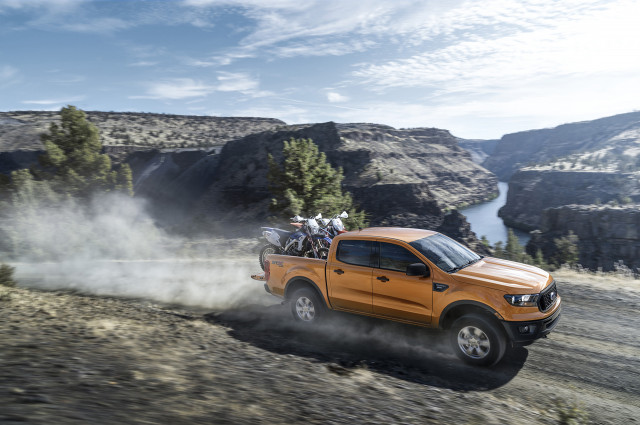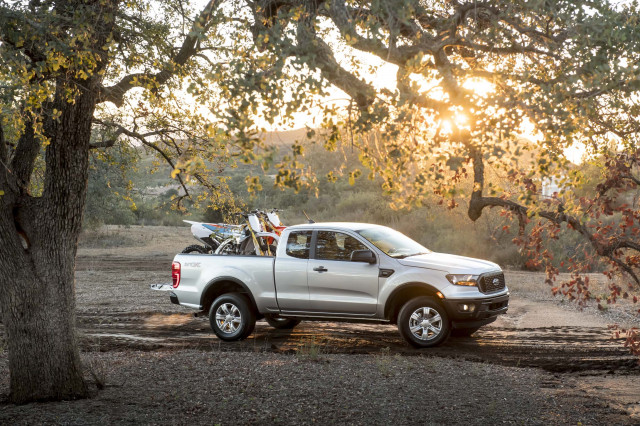
2019 Ford Ranger
Ford announced on Thursday that it opened an investigation into the fuel economy testing it does to receive official EPA ratings and federal certification to sell its vehicles in the U.S.
The company plans to start by retesting its 2019 Ranger midsize pickup, after employees raised concerns through Ford's internal reporting channel called Speak Up.
The concerns involve how Ford measures the energy required to drive a car down the road, called "road load," which then becomes a factor in further fuel economy measurements.
MUST READ: Ford Cuts Gas Mileage On 6 Models: What You Need To Know, And Open Questions (2014)
Under EPA fuel-economy testing regulations, automakers test road load by letting a car coast from 60 mph to a stop and measuring the time and distance required to stop. This gives an indication of how much wind and road resistance and friction a vehicle generates going down the road and various speeds.
The results of the coast-down test are then fed into a dynamometer, a kind of treadmill for cars used in emissions and horsepower testing to mimic that load as the car drives a simulated road loop in lab for emissions and fuel-economy testing. It is designed to make the engine work as if the car were actually driving on the road.
But multiple factors can affect the road load, such as exact tire pressures, ride height and various aerodynamic parameters—and can affect the resulting fuel economy and emissions numbers. (In an equivalent European test, now outdated, engineers have even been known to tape doors closed in the coast-down test to cover the gap between the door and body to improve aerodynamics and increase fuel economy ratings.)
READ MORE: EPA Wants Carmakers To Verify Gas Mileage With Road Testing Too (2014)
Automakers are required to achieve certain emissions targets to sell cars in the U.S., and can face big fines if they don't meet fuel economy targets across their whole model lineups.
As a result of the employees' reports, Ford has hired an outside investigation team to examine the specifications it uses in testing road load and retained independent technical experts in the industry as part of its investigation team. The company has also hired an outside laboratory to conduct independent coast-down tests on its vehicles, starting with the Ranger.

2019 Ford Ranger
Ford spokesman Said Deep said the company is starting by retesting the 2019 Ranger, but "if we need to expand our investigation beyond that, we will." The Ranger is currently rated at 21 mpg city, 26 highway, and 23 combined for 2-wheel-drive models, and 20/24/22 for 4WD models.
Other automakers, such as Hyundai, have had to restate fuel economy numbers and pay consumers for extra fuel costs above what some of their cars' fuel-economy labels indicated. Subaru and Nissan have faced similar concerns in Japan, in some cases also flagged by employees.
In 2013 and 2014, Ford had to lower fuel economy labels on its Fusion and C-Max Hybrids and its Ford Fiesta and offered gas rebates to buyers to compensate for additional fuel the cars used above what their EPA ratings indicated. Deep says the current investigation involves separate issues from those instances.
CHECK OUT: Hyundai, Kia Rapped By EPA Over Misstated MPG Stickers (2012)
Since those concerns, along with the VW diesel emissions-cheating scandal, came to light, the EPA has been conducting more of its own tests and has insisted that automakers do more real-world testing on the road.
Deep said the current question over Ford's road-load testing does not involve an emissions cheat device, such as those used in Volkswagen and Fiat Chrysler diesels, that restricted emissions controls to fully function only in testing, and allowed those cars to emit far more pollution when driven on the road than federal standards allow.
He said he expects the investigation to take several months.